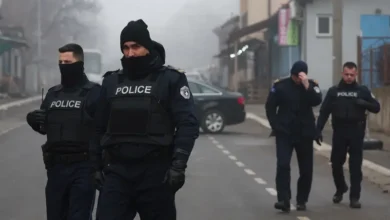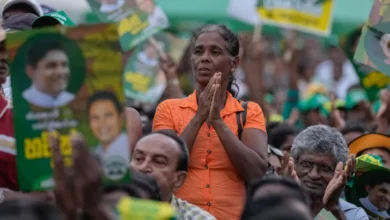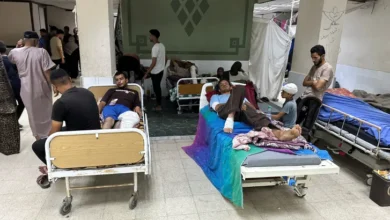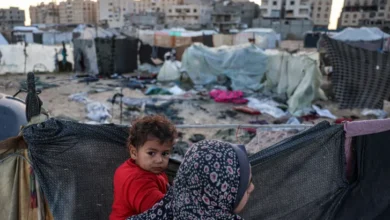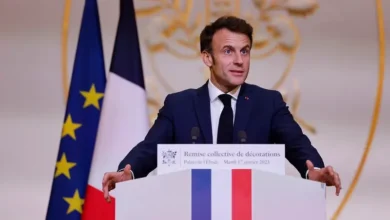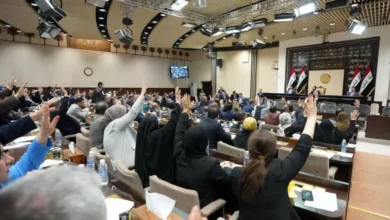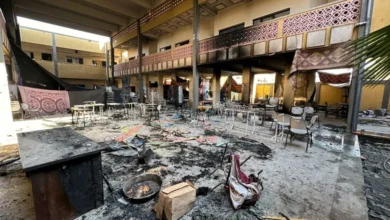Trump’s troop deployment to Chicago blocked by judge
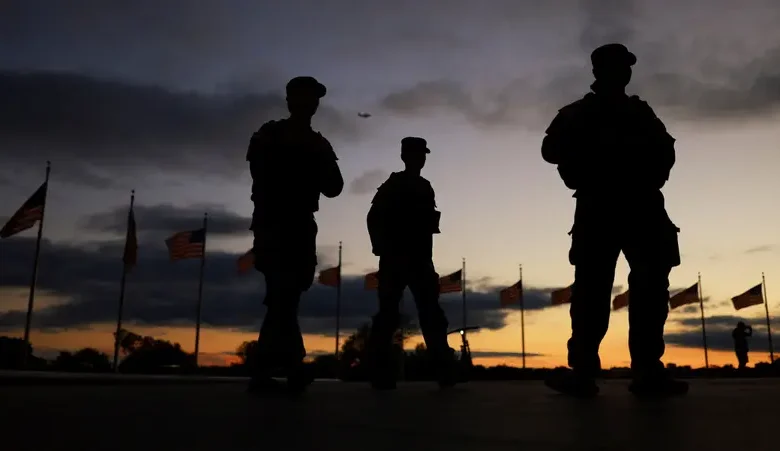
A federal judge blocked President Donald Trump’s effort to send hundreds of National Guard troops to Chicago to counter protests against his immigration crackdown, the latest setback in the administration’s effort to deploy soldiers in Democratic-led cities.
The ruling Thursday by US District Judge April Perry, following a hearing in Chicago hours earlier, halts the president’s order for at least 14 days. It comes as the administration is challenging a similar ruling by another judge limiting the use of the military in Portland, Oregon.
Illinois and Chicago sued earlier this week, alleging the deployment of guardsman over their objections would violate the Constitution and trample state sovereignty.
The lawsuits in Oregon and Illinois, as well as an earlier case over troop deployment in Los Angeles over the summer, are part of a growing clash between Democratic-led states and Trump over the use of National Guard troops in cities he describes as crime-ridden and incapable of protecting federal property.
The legality of Trump’s use of the troops may ultimately be decided by the US Supreme Court, though it may take months for any of the lawsuits to make it there.
Perry issued her ruling from the bench on Thursday, and said a final draft of her written opinion would be made public Friday.
The judge said she was “troubled” by what she described as a disconnect between the official orders from the federal government directing the activities of military troops in Chicago and the public statements made by the president about what their duties are in the city.
She also rejected the president’s claim that his actions were lawful because protests against his immigration crackdown in Chicago posed the risk of rebellion against US government authority.
“I have seen no credible evidence that there is the danger of rebellion in Illinois,” the judge said.
In their complaint, Illinois and Chicago accused Trump of a wide-ranging effort to use National Guard troops “to punish his political enemies.”
The Trump administration claims the military deployment is justified because civilian law enforcement wasn’t doing enough to quell protests and protect Immigration and Customs Enforcement agents — claims that Illinois Governor J.B. Pritzker and Chicago Mayor Brandon Johnson both deny.
Trump on Wednesday said that Pritzker and Johnson belong in jail.
Trump has made sweeping claims about the need for troops to reduce crime in Chicago, but the official memorandum from Defense Secretary Pete Hegseth states that the troops are being called in order to protect immigration officials as they carry out their official duties.
But Perry said that tactics used by immigration agents in Chicago so far have only increased the risk of protests, and that bringing in the National Guard would only make matters worse.
“Evidence demonstrates that the deployment of the National Guard will lead to civil unrest,” she said.
Trump’s authority to deploy federalized National Guard troops to quell domestic protests is being questioned by Democratic officials across the US. In September, a federal judge in California ruled Trump violated federal law by sending troops to Los Angeles to aid an immigration crackdown. Washington, D.C., has also sued to block his ongoing deployment to fight crime in the nation’s capital.
During Thursday’s hearing, US Justice Department attorney Eric Hamilton argued that the president alone has the authority to decide when to federalize a state’s National Guard troops and that decision is not subject to review by the courts.
The Illinois lawsuit points to Trump’s Sept. 30 speech at the Pentagon to hundreds of military leaders, in which the president blasted Chicago and threatened to send in the guardsmen.
“He told them that they must prioritize ‘defending the homeland’ against the ‘invasion from within’ in American cities run by ‘radical-left Democrats,’ specifically including Chicago,” according to the suit. “He stated his intention to use our neighborhoods ‘as training grounds for our military.’”
Illinois also pointed to a Sept. 6 social media post by Trump that included an image of the Chicago skyline in flames and said, “Chicago about to find out why it’s called the Department of WAR.”
The case is State of Illinois v. Trump, 25-cv-12174, US District Court, Northern District of Illinois (Chicago).
